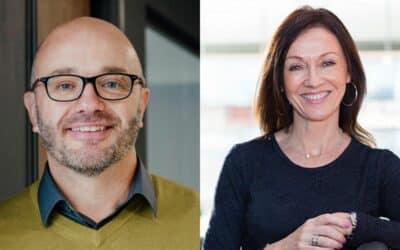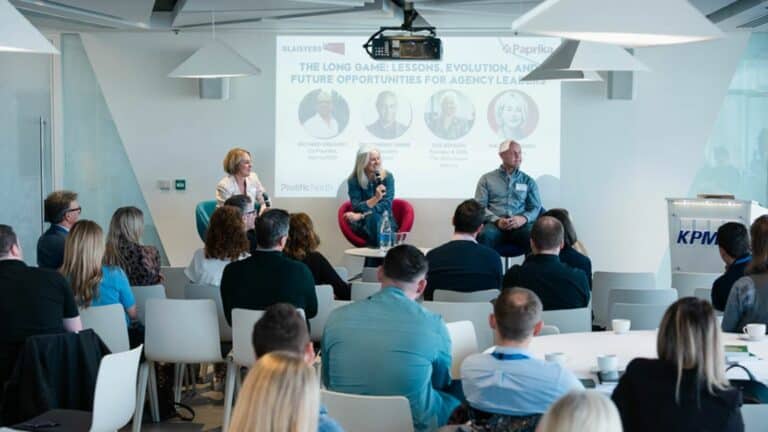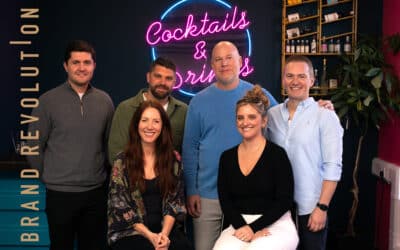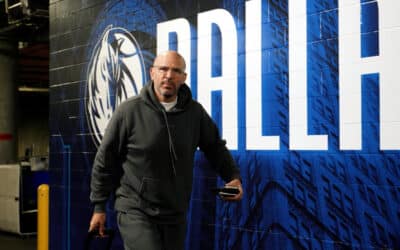Agencies can sink the moment leaders lose passion and focus solely on selling, according to industry leaders speaking at Prolific North’s recent Growth to Gold event.
“The moment that you decide you don’t want to do this anymore, the business starts to decline,” warned Stephen Kenwright, director of strategy and digital marketing at Ride Shotgun and former co-founder of Rise at Seven.
“It’s not necessarily reflected in the P&L (profit and loss) immediately, but you stop taking risks, stop making decisions, you start to just let things coast and that’s the beginning of the end for an agency.”
Kenwright was part of a stellar-line up of speakers at the third edition of Prolific North popular Growth to Gold event, where agency leaders united to uncover insights on scaling, talent, acquisitions and investments.
Hosted at KPMG‘s Manchester office on 26 March in conjunction with headline sponsors Paprika Software, KPMG and Glaisyers, the event kicked off with a welcome from host Richard Gregory, co-founder of Agency NXD, and opening remarks from sponsors.
During a jam-packed keynote talk focused on agency growth, Ride Shotgun’s Stephen Kenwright shared a fascinating overview of his impressive career journey so far, from starting out brand-side to co-founding fast-growing agency Rise at Seven in 2019 and later exiting via an MBO (management buyout).
Joining Ride Shotgun last year after taking some time away as a stay at home dad, it is the “polar opposite” to anything he had done previously and has given him a flavour of the full marketing mix.
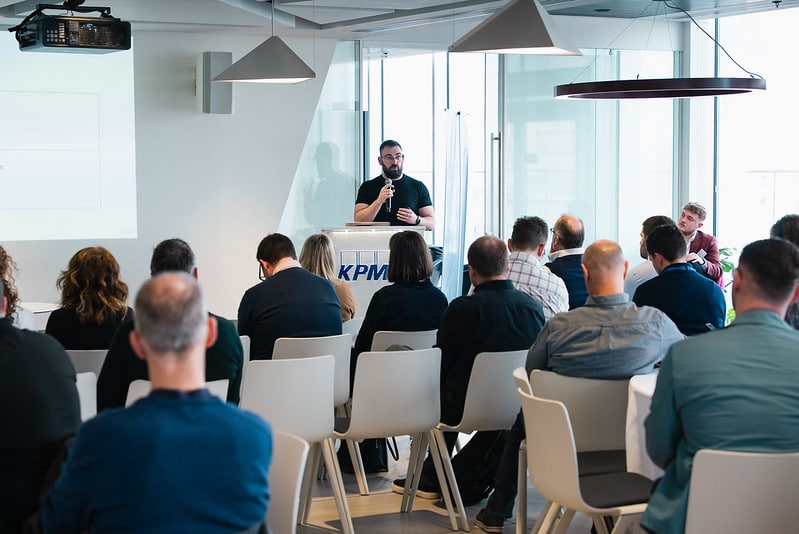
On agency growth, he set out the four states agencies currently exist in: “We’re either for sale or we’re not, and we’re either likely to be bought or not.” Those that are for sale are either sellable or not, the same goes for those agencies not up for sale.
Emphasising the importance of positioning an agency for sale and ensuring it remains viable and sellable, he shared his top tip for agencies looking to sell, and it’s all about planning ahead: “If you’re going to go to market, you want to be going to market at a point when you could actually be bought. You’re not for sale, but are sellable.”
To be sellable, agencies need to look into market research, identify clear market segmentation, targeting, and positioning.
“Positioning as an agency is the thing that makes everything easy,” he explains. “At Rise at Seven, the growth bit was straightforward because we knew exactly who we were for, what we were doing, how we were going to actually service that need, and that’s because we didn’t just understand our positioning, but we understood that segment of the market we were going after who would be the right customer for us and what they need.”
Outside of network agencies, independent businesses need differentiation to not only show how they are different but in a way that is “valuable to clients”.
But one thing agencies “generally don’t do particularly well” is have a statement to showcase what their positioning is. “We were walking the talk,” he said, with an insightful glimpse behind the scenes at Rise at Seven’s meteoric rise and consistent branding. The agency had a “very clear idea” of clients it would be targeting from the outset.
Agencies also need to focus on four more key areas for growth including: objectives, product, price, place, and promotion, by assessing client needs, share of market, and even attracting talent. He also showcased the significance of a well-defined recruitment strategy, likening it to client acquisition, to attract and retain top talent.
“The reason we were able to hire so many people, so quickly, is because we understood exactly who our people would be and how we would bring them on board.”
Next up, there was a dynamic discussion with leaders from ‘new wave’ social-first agencies Campfire and Butterfly 3ffect. Setting the scene with his career journey so far, from life at Social Chain to co-founding Butterfly 3ffect alongside Elfried Samba, Michael Heaven said the duo always spoke about the “disconnect” between agencies pitching to brands and set out to change things.
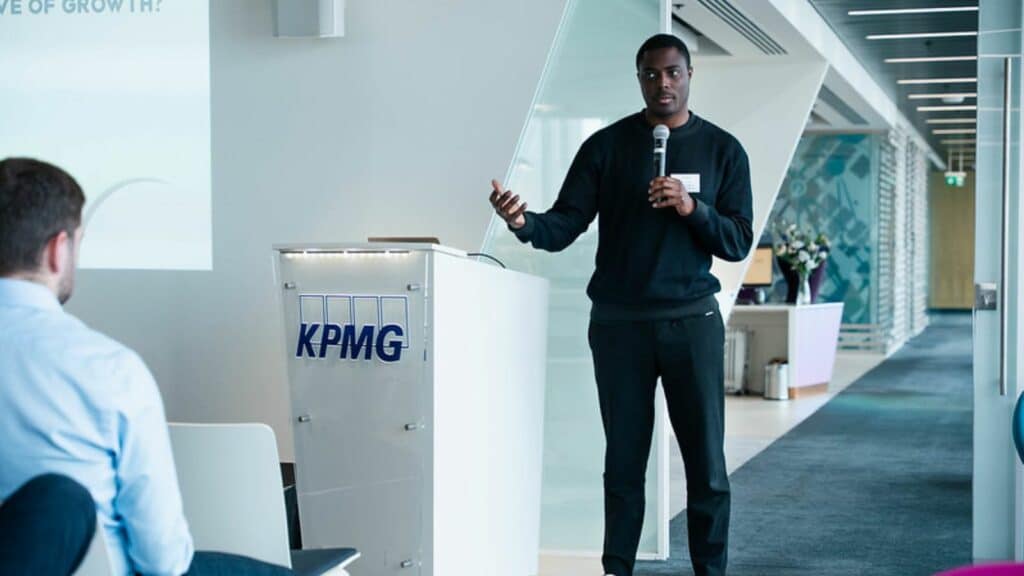
Within just a few years of launching, the agency now has 40 staff in total with 8 full-time based across everywhere from York in the UK to New York with a remote working policy.
And when it comes to co-founder dynamics, although he’s “culturally and mindset aligned” to Samba, he admitted that although they are “chalk and cheese”, when it comes to execution it “works really well”.
“My co-founder is a visionary thinker and I’m the one that asks how we do that. We are able to balance that big thinking with practical steps to execution – and it’s the same for other things across the business.”
Launching the business was a “critical” moment that he’s especially proud of, especially as an agency that hit £1m revenues in just one year..
“It was a really, really fast start and we have a solid foundation to get started on. We’ve been able to work with clients all the way from like LA into the Middle East. So I’m excited about those!” Now, Butterfly 3ffect is doing work on defining what the agency is and how to make it scalable.
Another former Social Chain leader, Alex Brown, took to the stage to share his experiences of growing his rising agency Campfire. Launched over six years ago alongside co-founder Joe Gradwell, Campfire now has 62 staff. But it wasn’t the easiest of starts.
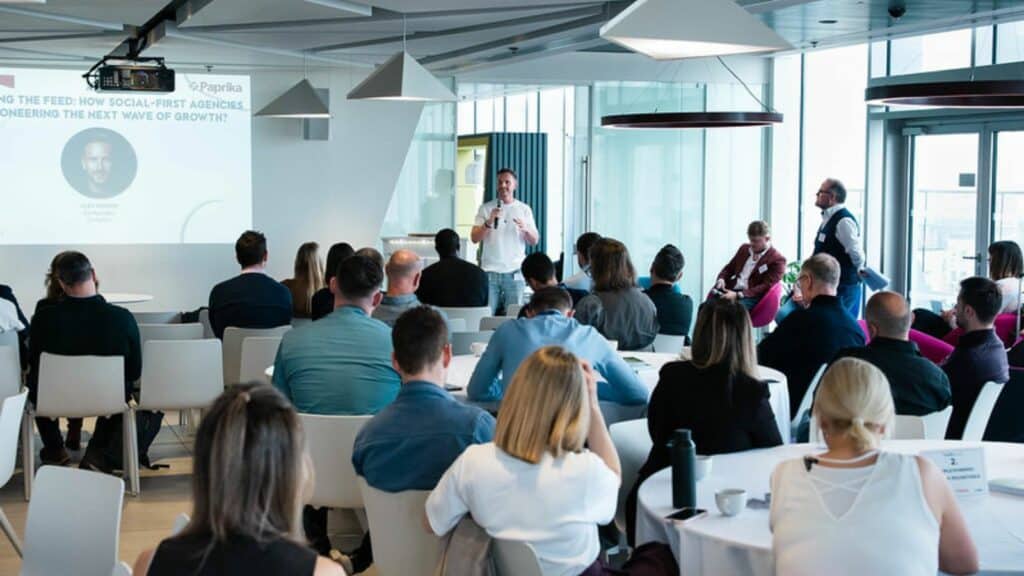
“We started right before Covid, which was like an absolutely terrifying time for a new business to start because we started out with so many hopes and dreams and thought that the world was closing down,” he explains.
Thankfully as a digital and social agency, it became a “positive and a fuel for growth” especially when it came to differentiation. “We didn’t do that process of who we are and who our deal customer was initially, we were just trying to be for everyone,” he explained.
“The stars aligned for us on a project that we did with the brand Ink Key List to launch their community on Tiktok, which was new at the time. No one really knew how to use the platform, but we had social-first experience from working at Social Chain.”
It led to Ink Key list products “flying off the shelves” and paved the way for “a lot of organic growth” for the agency. Following work to avoid being “pigeonholed” as an agency servicing a particular sector, Campfire soon discovered its groove.
“Now our flagship offering, and what we’re now known for more so than Tiktok, is for two tech platforms called Spark and Vibe Check. That tech side is now very much what draws clients to us versus Tiktok”
Last year, Campfire had a major boost to its scaling journey following a partial acquisition through private equity (PE) investment. He added: “That’s where we’re at now, we’re post completion of a deal, we’ve got a really strong board around us, and we’re now in that process of scaling up talking about things like acquisitions so that is all very new!”
Although the PE investment into the agency may be considered “early” by some, for Campfire’s founders it was a no-brainer to tap into a wealth of experience to continue scaling the business. The agency is currently on a hiring spree, with plans to hire another 16 staff by the end of 2025.
Next up was a candid panel discussion with seasoned agency leaders from Apadmi, Tigerbond and The Behaviours Agency. Rachel Gladwin, co-founder of Tigerbond, shared how she became an “accidental” founder and leader following an MBO. With a career spanning back to the late 90s working for major agencies, now she’s part of a group of five co-founders.
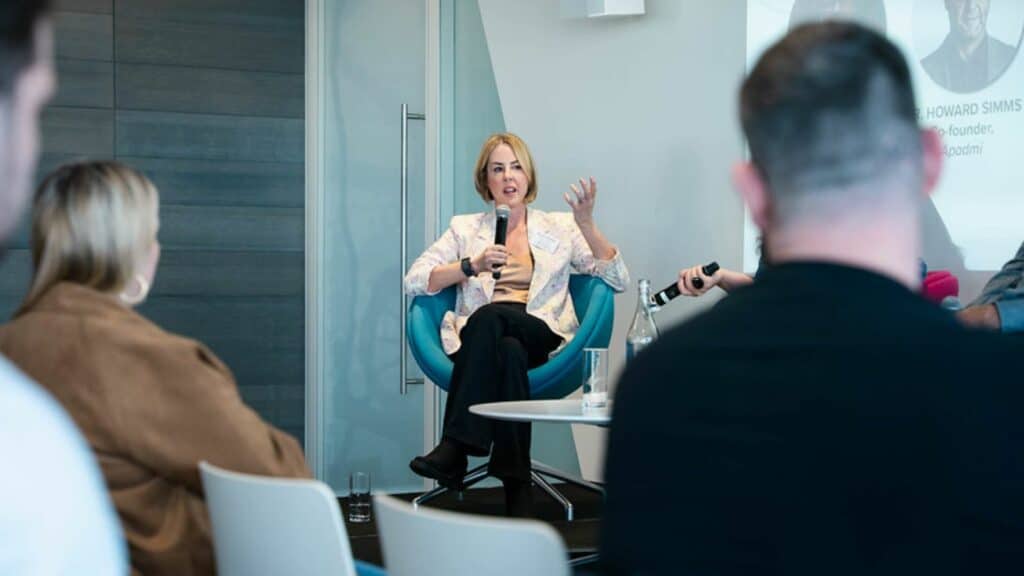
“We’re a fledgling agency, backed by decades of heritage, we always feel that we’ve got a lot left to do,” she explains. “We’re in our fourth financial year, so it’s very early days for Tigerbond.”
The “biggest job” for the agency over the past few years was to move away from its Beattie heritage and gear up for the next 10 to 20 years.
“We’ve really focused on our culture, our employee value proposition, and what that means for Tigerbond but also positioning ourselves and our network, which is something that we inherited through the MBO.”
Tigerbond’s positioning has transformed too to ensure it is “relevant” to customers today, through “building brands through community”. She added: “Our talent was our selling point, so we’re working on modeling that now and winning more clients in that space.”
The “DNA” of the business is having boots on the ground right across the UK from Manchester to London, and additional bases in Ireland.
Sue Benson, founder of The Behaviours Agency, has run her brand-led agency for around 20 years but also works as a board advisor for a number of businesses, alongside her role as head of IPA and board advisor of MBA.
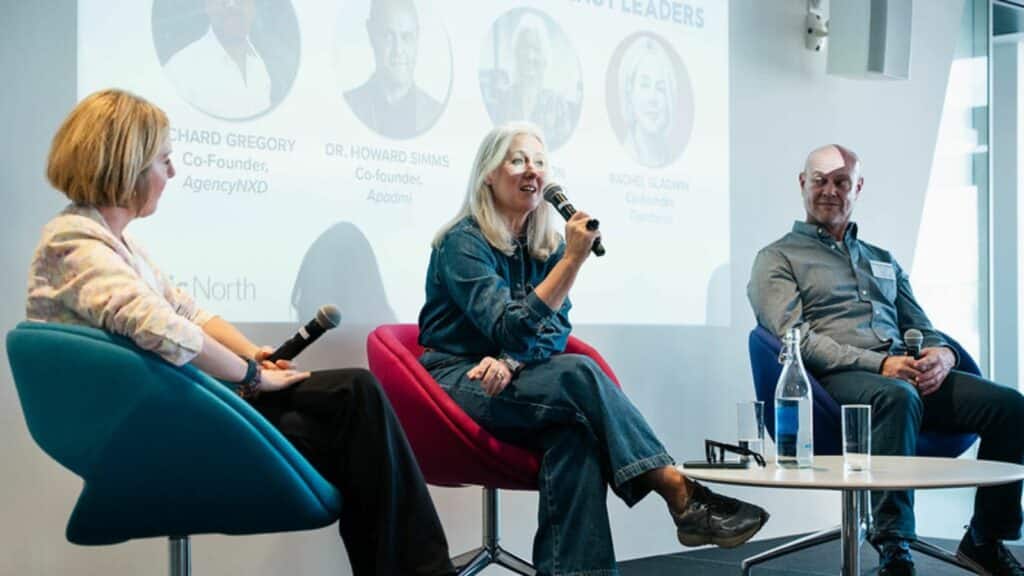
She detailed her journey in pivoting the agency from a shopper-focused business into a behavioral science-driven agency. Thirteen years in, a need for differentiation led to exploring behavioral science.
After upskilling the team and rebranding from The Market Creative, it changed things “immediately”, attracting major clients. Having launched the business following senior roles working at the likes of McCann, Benson and her business partner never aimed to build an “enormous” company and always envisioned a “family size business”. Now with around 14 staff, it’s a model that’s worked well. As for the future, she wants to ensure the team is able to “thrive”.
Dr. Howard Simms, co-founder of digital products agency Apadmi, detailed his entrepreneurial journey with Apadmi and how he eventually exited the business at the end of 2023 to “start a new life”.
He is still “best mates” with his former co-founders and charted Apadmi’s rise to the top. The digital consultancy’s initial strategy was to cap growth at 50 to 65 people while investing in a number of technology solutions. Starting in the early days of mobile technology with a solid engineering team, Apadmi set out to spot gaps in the market and “build the technology around it”.
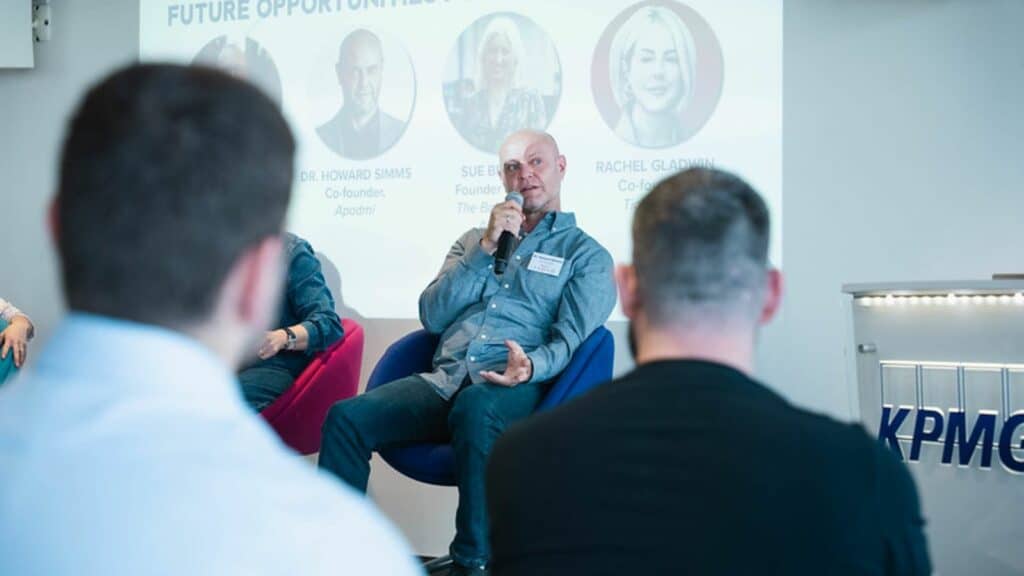
However, Simms admitted they were “naively” building technology without knowing how to sell it. Apadmi then moved into the world of investing into early-stage tech businesses, with Simms running Apadmi Ventures.
Realising that many early-stage ventures fail and Apadmi wasn’t reaching its full potential, they refocused on growing Apadmi itself. “We restrategised and decided to grow Apadmi. That’s when we stopped investing in tech and poured that into ourselves.”
This strategic shift resulted in significant growth, from 80 to 500 employees, and Apadmi is now on an M&A path, backed by private equity. Reflecting on Apadmi’s string of acquisitions, he said this helped the business not only to boost the team but also bolster its capability to deliver digital products.
On differentiation, it wasn’t a “crowded” space when Apadmi first set out on its journey. “We were the first,” he explained. “Nowadays, it’s very crowded. You’ve always got to be thinking about where we are special? Who do we appeal to? How do we position ourselves? If you’re not doing that, it’s a bit of a hope.
“We became very strong on marketing, making sure we were the right offering, and who we were going after became really important to us.”
Talent was a big talking point. Gladwin said Tigerbond has been “lucky” thanks to physical offices in a number of locations and a hybrid office policy of two days in the office per week.
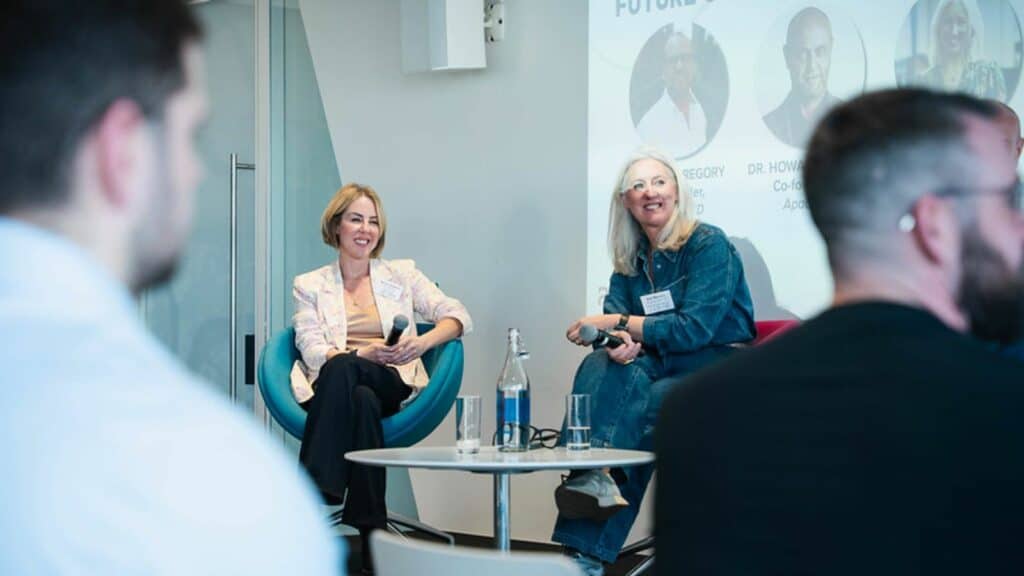
“We’ve always been able to blend those teams quite seamlessly for client needs. We don’t have any vacancies, and the great resignation of the pandemic days seems to be over. We’re building really strong connections with our teams at the moment, which is fantastic, so long may that continue!”
For Benson, there needs to be more work done on building cultures that “retain the older generation”. She explained: “I think there’s an acknowledgement now that we need greater representation in all of our businesses across those generations.”
Following the panel discussions and talks, attendees joined a number of interactive roundtables led by industry veterans covering everything from agency M&A, talent, international growth, and AI.
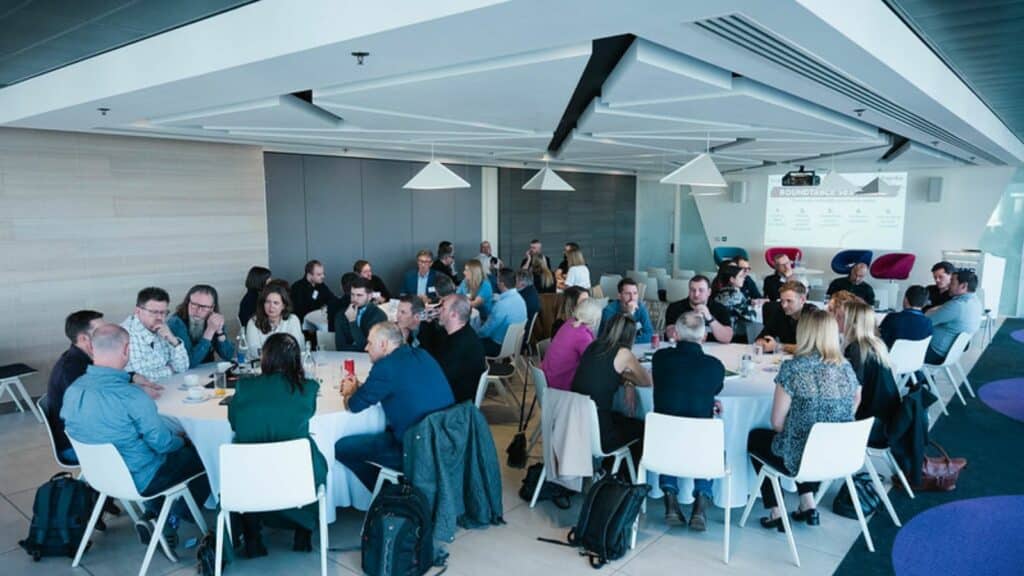
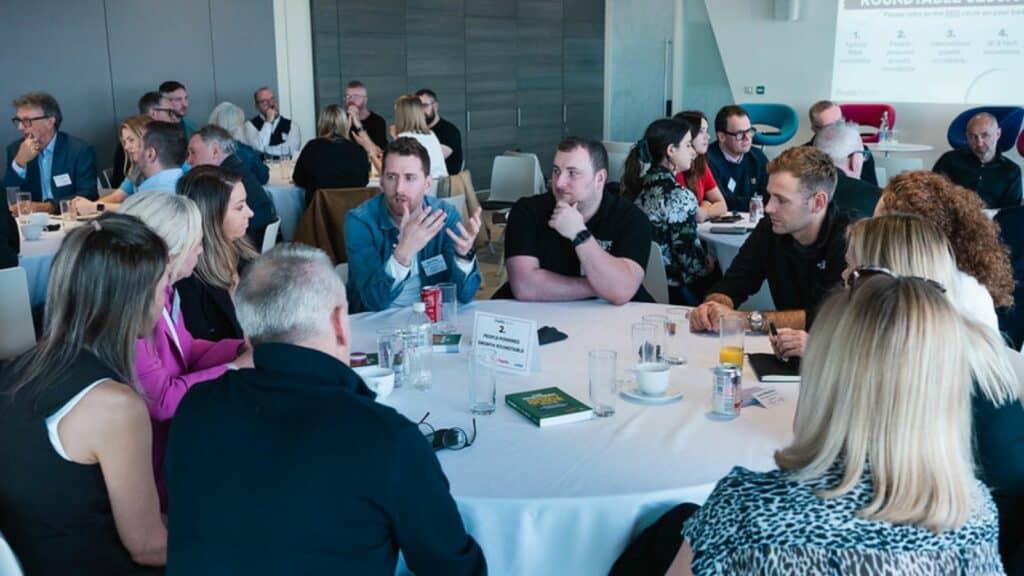
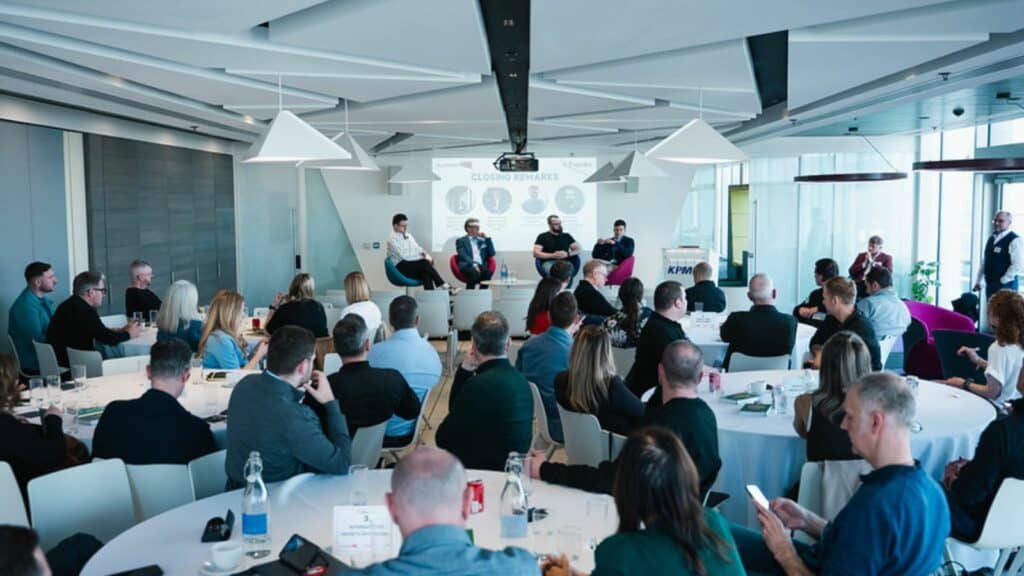
The event wrapped up with closing remarks from Ben Taylor, director at KPMG; Stephen Kenwright from Ride Shotgun; Nick Tomlinson, president at Paprika Software; and Steve Kuncewicz, Partner – head of creative, digital & marketing at Glaisyers.
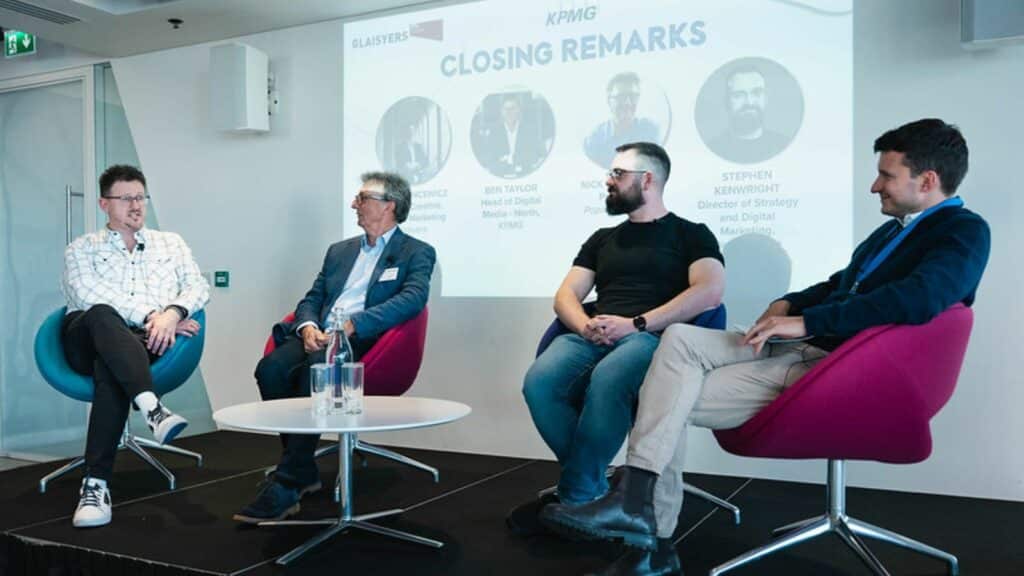
For Taylor, agency differentiation was the key theme he pulled from the event. “Be crystal clear on what you are going to be famous for, what’s going to make you different versus others, and ultimately what will make you attractive to the investor required?”
There is “power” in preparation by bringing in the right advisors or partners support early on and this is “invaluable” to gear up for a future deal, especially as the due diligence process can be “quite painful”.
To tackle this, agency leaders need to understand the value in having the “right people” around them to ensure the business keeps ticking along smoothly in the background.
“When your focus moves onto something else, the business can suffer because some leaders are so focused on the deal.”
Reflecting back on Alex Brown and Michael Heaven’s discussion earlier in the day, Kenwright’s final thoughts were around the power of investing in marketing to fuel agency growth.
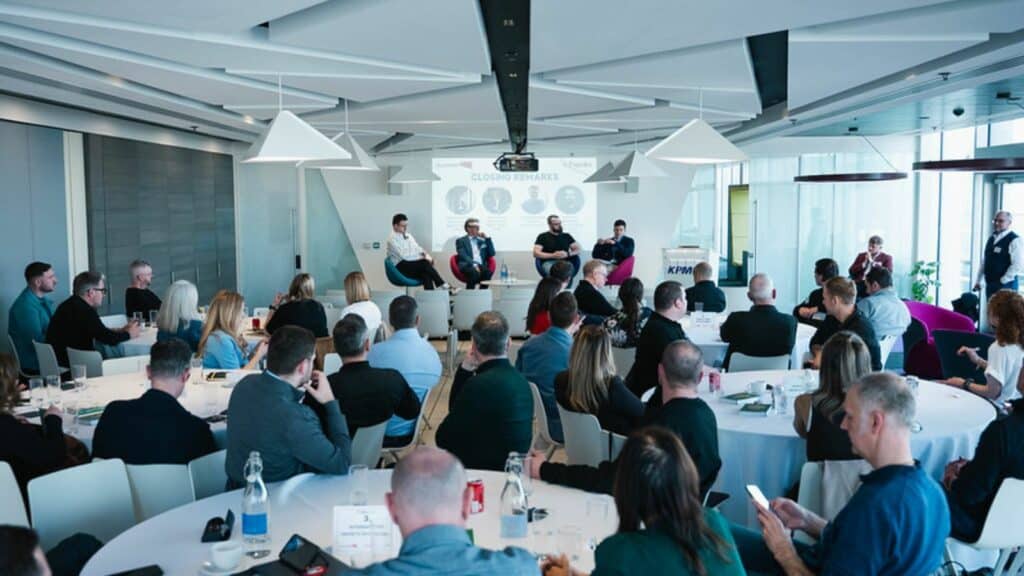
“The one thing that unites every single one of these roundtables today, and the common thread that I think I’d love to see over the next year or so, was really strategising about what our ideal customer looks like and what we’re going to do about it. I’d love to see more marketing from marketing agencies.”
The key takeaway for Nick Tomlinson, president at Paprika Software? It’s the “optimism” in the North as he explained how “refreshing” it was. “There is a feeling that there is a North v South divide but the optimism here is contagious.”
Steve Kuncewicz at Glaisyers hailed the “huge amount of ambition” in the room with plenty of opportunities despite some “pretty grim” times in Q3 and Q4 last year. He added: “Northern creativity is more than enough”.
Wrapping up the event, Richard Gregory said: “It’s a competitive thing that drives us forward. Just the act of coming to these events is about learning, pushing yourself a little bit, looking at what can I do differently and acknowledging that you could. There’s always something we can do, and maybe that’s where the optimism comes from.”
Growth to Gold will be returning to Leeds later this year so keep your eye on the website for updates soon!
Headline sponsors

